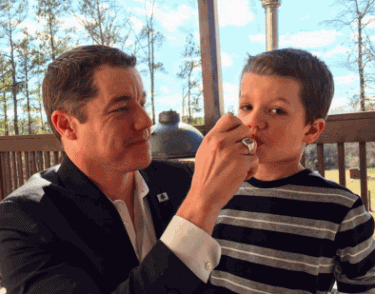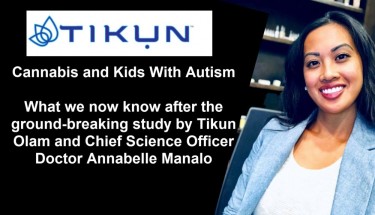
CBD-dominant extracts improve autism symptoms in children, new medical studies say
According to the Centers for Disease Control (CDC), approximately 1 in 44 children in the United States will have an autism spectrum disorder.
While most cases are genetic, other possible factors also play a role. This includes having older parents and having a child with Autism Spectrum Disorder means the likelihood of having another child with it is 2-18%. Although early diagnosis and intervention are helpful in treating and relieving symptoms, there are still many children who become adults living with challenging symptoms of autism.
Because autism affects the entire body, children who end up becoming adults with autism struggle with physical and mental illness. Some of these are depression, anxiety, chronic sleep problems, ADHD, epilepsy, schizophrenia, and many more.
The medical cost of autism
The cost of raising a child with autism skyrockets. On average, it costs around $ 60,000 a year during childhood, with the majority of that cost being used for special services as well as lost salaries because one or more parents have to care for the children.
It is now also having a serious impact on the economy. In 2015 alone, $ 268 billion was spent caring for people with autism in the United States; Those numbers are set to rise to $ 461 billion by 2025.
How cannabis helps
There are a growing number of studies showing that cannabis and its non-psychoactive compound, CBD, are beneficial in treating children with autism spectrum disorder. Normalizing cannabis as an autism drug in place of other conventional drugs that have many serious side effects will be key to helping more people lead the most normal lives possible despite being born with autism.
The latest study, published in late December 2021, comes from Istanbul, Turkey, where researchers looked at the use of CBD-dominant extracts in 23 teenage participants with mild to severe autism. “The main improvements in treatment were as follows: a decrease in behavioral problems was reported in 10 patients (32.2%), an increase in expressive language in patients (22.5%) and an increase in expression in 4 patients (12.9%) improved cognition reported. , an increase in social interaction was reported in 3 patients (9.6%) and a decrease in stereotypes in 1 patient (3.2%). The parents reported an improvement in cognition in patients who had been on CBD-enriched cannabis treatment for over two years, ”the investigators report.
However, there were 6 patients who showed no significant changes in behavior.
“The use of lower doses of CBD and traces of THC appears to show promise in treating behavioral problems associated with autism,” the authors conclude.
In June 2021, a similar study from Brazil showed cannabinoids show promise for treating autism. Brazilian researchers reviewed 9 clinical studies analyzing the effects of cannabinoids in patients with autism spectrum disorder. Participants in 5 of the studies received oil extracts from plants, while 2 studies focused on the use of CBD only; one study looked at CBDV (cannabidivarin), while the last looked at the use of oral THC in dronabinol form.
Positive changes in autism symptoms were noted after administration of cannabinoids, such as cognition, attention, social interaction, and language. ”In addition, mild to moderate side effects have been reported.
“Cannabis and cannabinoids have very promising effects in the treatment of autistic symptoms and can be used as important therapeutic alternatives in the future,” the authors conclude.
In 2019, a study from Israel proves that cannabis can be a beneficial treatment for children under the age of 18 who have autism. Investigators from Ben Gurion University of the Negev and Soroka University Medical Center found that 80% of participants showed some improvement after 6 months of treatment with cannabis.
“We analyzed the data that were prospectively collected between 2015 and 2017 from 188 ASA patients with medical cannabis as part of the treatment program. Treatment of the majority of patients was based on cannabis oil with 30% cannabidiol oil (CBD) and 1.5% tetrahydrocannabinol (THC.). ). Symptoms, overall patient assessment and side effects after six months were the main results of interest and were assessed through structured questionnaires, ”explains Dr. Gal Meiri from the Negev Autism Center.
In particular, they found that 30% of patients saw significant improvement after 6 months of treatment, 53.7% showed moderate positive changes, while 15% had slight or no change. In addition, the study looked at the benefits of cannabis on the participants’ quality of life. The researchers examined mood, quality of life, and their ability to engage in daily living activities before treatment as well as after 6 months. Before treatment, 31.3% of patients reported a good quality of life, which doubled to 66.8% after 6 months; They also found that 42% of patients had a positive mood before treatment, which increased to 63.5% after 6 months.
In addition, the results showed that the use of cannabis oil was beneficial for improving focus and sleep.
“While this study suggests that cannabis treatment is safe and can improve ASD symptoms and improve the quality of life for ASD patients, we believe that double-blind, placebo-controlled studies are critical to better understanding cannabis effects in ASD patients,” says Dr Victor Novack from the BGU-Soroka Clinical Cannabis Research Institute.
With most studies showing helpful improvements, it is certainly a drug that parents, with medical guidance, can consider for their children.
AUTISM, CBD AND KIDS, READ MORE …

DALE JACKSON ON COLIN’S VOICE CBDCANNABIS DROPS FOR HIS SON!
OR..

WORLD’S LARGEST STUDY ON CHILDREN WITH AUTISM AND CANNABIS!

Post a comment: